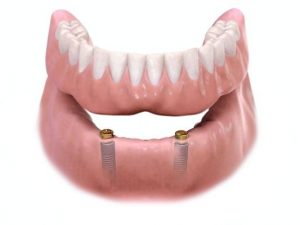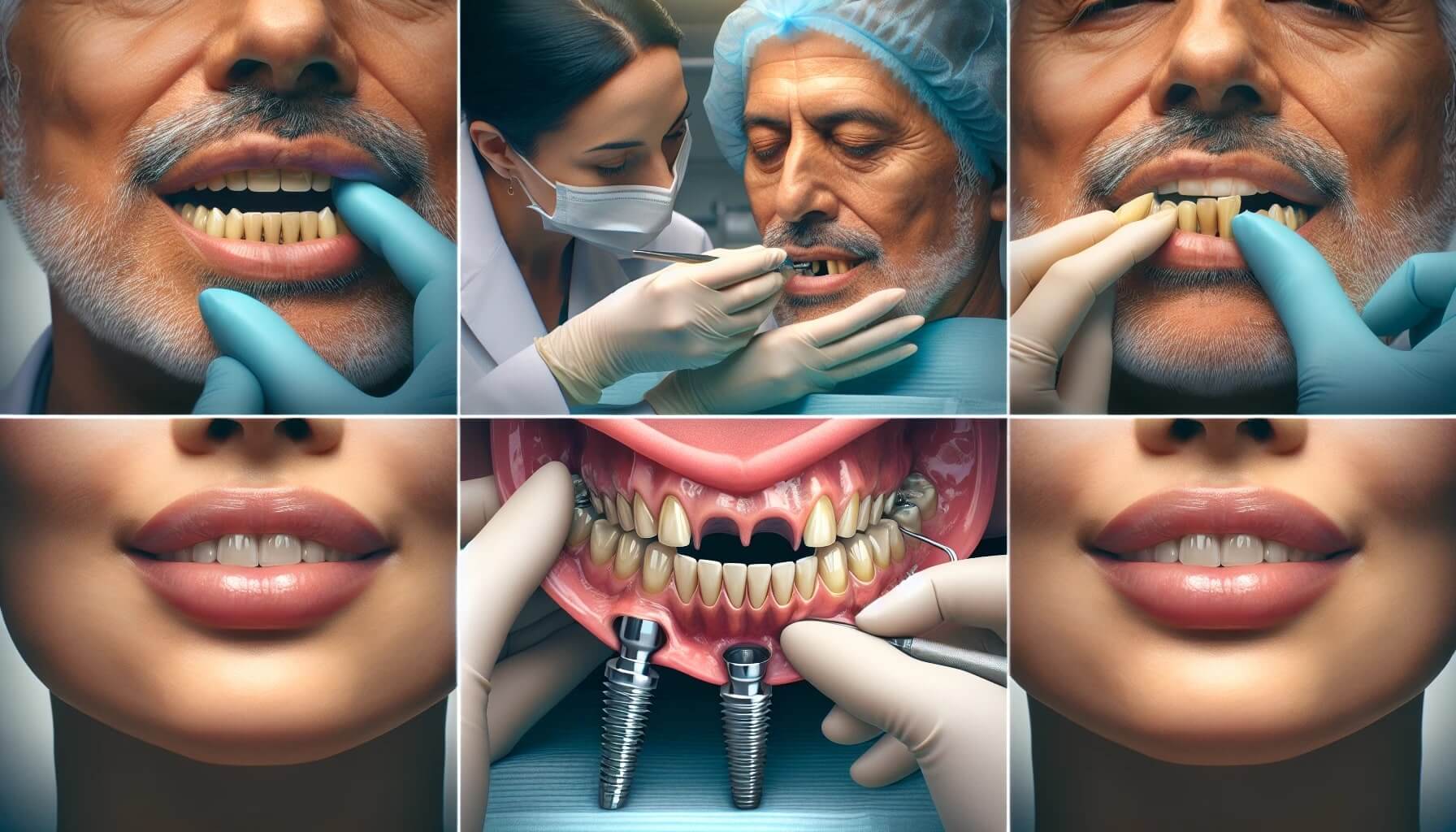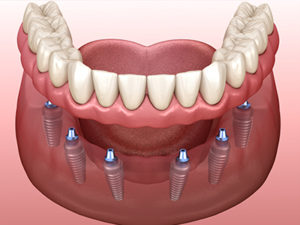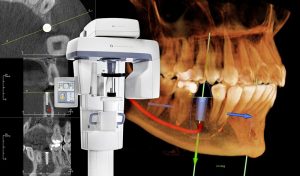
Are you tired of living with the discomfort and limitations that come with traditional dentures? Denture on implant solutions can revolutionize your life, providing enhanced stability, comfort, and functionality. In this blog post, you’ll discover the world of implant supported dentures and how they can unlock the smile you deserve. Say goodbye to the hassles of conventional dentures and embrace a new, life-changing solution.
Key Takeaways
- Denture on implant solutions provide a secure, comfortable and aesthetically pleasing alternative to traditional dentures.
- Implant supported dentures offer improved stability, comfort and bone preservation compared to traditional dentures.
- Consultation with a dental professional is necessary for assessing eligibility criteria as well as cost considerations & insurance coverage.
Understanding Denture on Implant Solutions
Unlike conventional dentures, implant supported dentures serve as a stable, comfortable alternative, enhancing functionality and aesthetics for those with missing teeth. These implant dentures are secured in position through dental implants or screws embedded in the jawbone, offering a more secure solution to tooth loss compared to traditional dentures. Generally, two to four implants are utilized in each jaw for snap-in dentures, although the number may vary depending on the individual’s need and budget. One such option for patients is the fixed implant denture, which provides additional stability and comfort.
Denture on implant solutions come in various types, including fixed implant supported dentures, removable dentures, and snap-in dentures. The choice between these options depends on factors such as jawbone health, medical history, and personal preference. As a result, denture on implant solutions outperform traditional dentures, empowering you to smile, eat and converse confidently.
The Advantages of Choosing Implant Supported Dentures Over Traditional Dentures
Implant supported dentures boast several benefits over traditional dentures such as:
- Improved stability
- Comfort
- Bone preservation
- Enhanced quality of life
Implant supported dentures, also known as false teeth, offer enhanced support of facial structures, maintaining a more youthful look and enabling you to consume your preferred foods without limitations. In addition to providing better comfort and stability than conventional dentures, an implant supported denture allows for a more natural biting and chewing capacity.
One significant advantage of implant supported dentures is their ability to preserve the jawbone. Traditional dentures can lead to bone loss over time, requiring regular replacement to maintain a proper fit. In contrast, implant supported dentures maintain healthy bone by stimulating the bone around the implants, preventing deterioration. These benefits make implant supported dentures a popular and life-changing choice for many patients with missing teeth. Therefore, we recommend implant supported dentures to those considering this solution.
Eligibility Criteria for Denture on Implant Procedures
Candidates for denture on implant procedures typically have multiple missing teeth and require a more secure and comfortable solution than traditional dentures. Sufficient jawbone density is vital to successfully embed dental implants and establish a firm foundation for the denture. Optimal general health is also essential for a successful denture on implant procedure, as certain medical conditions may impact the healing process and overall outcome.
If you meet the eligibility criteria, denture on implant solutions can provide a life-changing transformation, offering improved stability, comfort, and quality of life. Consulting with a dental professional to assess your individual circumstances and determine the suitability of denture on implant procedures is highly recommended.
The Step-by-Step Process of Getting Denture on Implants
Securing denture on implants is a multi-stage process that includes:
- Pre-surgical assessment and planning
- Implant surgery
- Healing phase
- Fitting and adjusting your new denture
Each patient’s treatment plan is tailored to their individual needs, ensuring the best possible outcome for their unique situation.
Pre-Surgical Assessment and Planning
Before embarking on the denture on implant journey, a comprehensive pre-surgical assessment is crucial for a successful outcome. This assessment includes:
- An initial examination of your oral health
- A review of your medical history
- Evaluation of your jawbone density
- Utilizing advanced imaging technologies such as Cone Beam Computed Tomography (CBCT) to provide a clear picture of your jawbone structure.
Based on the results of your assessment, your dental professional will determine the best treatment plan for you. This plan will take into consideration factors such as:
- The number of implants required
- The type of denture on implant solution best suited to your needs
- Any additional procedures that may be necessary, such as bone grafting or tooth extractions.
Implant Surgery and Healing Phase
Implant surgery involves implant placement, which includes:
- Placing the dental implants into the jawbone, providing a stable foundation for the denture
- The procedure is typically performed under local anesthesia or conscious sedation to ensure patient comfort
- Following the surgery, the healing phase begins, during which the process of osseointegration takes place
- This involves the implant fusing with the surrounding bone tissue, forming a strong and secure foundation for the artificial tooth
The healing phase typically takes a 2-3 months, during which time the patient may experience some discomfort and swelling. Adhering to post-operative instructions from your dentist is vital to facilitate proper healing and successful implant integration.
Fitting and Adjusting Your New Denture
Once the healing phase is complete, and osseointegration has successfully occurred, the next step is fitting and adjusting your new denture. This involves placing caps and abutments on the dental implants, which serve as the connection points for the denture. Your dentist will ensure the denture fits comfortably and securely, making any necessary adjustments to achieve the best possible fit and function.
Communicating any discomfort or issues to your dentist during the fitting and adjustment process is important, enabling them to make minor adjustments for optimal comfort and functionality. With the right fit and proper care, your new denture on implant solution will provide you with the confidence and functionality you deserve. If you’re considering dental implants in Rockville, consulting with an experienced dentist can ensure a comfortable and long-lasting solution tailored to your needs.
Maintenance and Care for Your Implant Supported Dentures
Appropriate maintenance and care of your implant supported dentures is key to ensuring their durability and maintaining overall oral health. It’s important to attend regular dental checkups at least twice a year following the initial healing period, allowing your dentist to monitor the health of your implants and the surrounding tissues.
When it comes to cleaning your implant supported dentures, it’s essential to follow the recommendations of your dentist. For removable dentures, this typically involves removing them for cleaning and soaking them overnight in a denture cleaning solution. Fixed dentures, on the other hand, should be cleaned similarly to natural teeth, using specialized cleaning tools to ensure thorough cleaning around and underneath the denture.
Cost Considerations and Dental Insurance Coverage
The cost of denture on implant solutions can vary depending on the complexity of the case, ranging from approximately $3000 for a basic denture to more than $50,000 for both arches with multiple implants. Dental insurance coverage may potentially cover a portion of the expenses, depending on the specifics of your plan and applicable procedure codes.
In addition to insurance coverage, some dental practices, such as Rockville Dental Arts, offer financing options for implant supported dentures to help make the treatment more accessible to patients. Discussing cost considerations and insurance coverage with your dental professional is important for a clear understanding of your treatment plan’s financial aspects.
Real-Life Outcomes: Patient Stories and Testimonials

Real-life patient stories and testimonials showcase the life-changing benefits of denture on implant treatments. One patient reported that having implants installed in their lower gum with a full denture enabled them to smile and interact with others with confidence, as well as regain the ability to chew with a full set of teeth.
These firsthand accounts highlight the transformative power of denture on implant solutions, providing improved confidence and quality of life for those who have undergone the procedure. As you consider your options for replacing missing teeth, remember the potential life-changing benefits that denture on implant treatments can offer.
Comparing Fixed and Removable Implant Supported Dentures
Fixed and removable implant supported dentures each offer different benefits and drawbacks, with the choice between the two depending on factors such as jawbone health, medical history, and personal preference. Fixed dentures are securely attached to dental implants in the jawbone and cannot be removed by the patient, providing a permanent and stable solution.

On the other hand, removable implant-supported dentures, also known as “overdentures,” can be securely attached to dental implants in the jawbone and removed for cleaning with ease. Your dental professional can help you determine which type of denture on implant solution is best suited to your unique needs and circumstances.
The Role of Technology in Denture on Implant Treatments
Technology holds a significant role in denture on implant treatments, as advanced imaging and planning tools guarantee accurate and successful outcomes. Sophisticated imaging technologies, such as Cone Beam Computed Tomography (CBCT), Magnetic Resonance Imaging (MRI), and Intraoral Periapical X-rays, help dental professionals assess jawbone density and plan the placement of dental implants.
In addition to advanced imaging, Computer Aided Design (CAD) and Computer Aided Manufacturing (CAM) technology facilitate the creation of denture on implants through digital design and manufacturing processes. These technologies allow for increased accuracy, efficiency, and consistency in the production of denture on implants, ultimately resulting in improved patient outcomes.
Addressing Common Concerns and Myths
It’s not uncommon for patients to have concerns and misconceptions about denture on implant procedures, such as the safety of the procedure, the risk of infection, and the cost. While denture on implant procedures are generally considered safe, there are potential risks associated with any surgical procedure, including infection at the implant site, injury to surrounding structures, and nerve damage.
Consulting with a dental professional to evaluate your individual circumstances and ascertain the suitability of the denture on implant procedure is important to ensure its safety. Practicing proper oral hygiene and seeking prompt treatment if infection occurs can also help minimize potential complications and ensure a successful outcome.
Summary
In conclusion, denture on implant solutions can provide life-changing benefits to those who struggle with traditional dentures, offering improved stability, comfort, and quality of life. By understanding the different types of denture on implant options, the eligibility criteria, and the process involved in getting these treatments, you can make an informed decision about whether this revolutionary solution is right for you. Embrace the possibility of a new, confident smile and a life free from the limitations of conventional dentures.
Frequently Asked Questions
Can I wear dentures over my implants?
Yes, you can wear dentures over your implants! Although you may have worn dentures previously, it is still possible to receive dental implants.
What is a denture over implant?
A denture over implant is a solution which uses dental implants to securely fit and hold dentures in place, giving you peace of mind during meals and conversation without the need for changing your diet.
How does a denture attach to an implant?
A denture can be attached to an implant using either the ball-retained or bar-retained systems. In the ball-retained system, each post holds an attachment that fits into a corresponding adapter on the denture. With the bar-retained system, a metal bar is anchored to two to five implants and holds the attachments that connect to the denture.
Do implant dentures look real?
Implant dentures look very realistic since they fit the patient’s mouth and are made from titanium, which fuses with the bone. Additionally, their positioning means that they require less plastic, making them appear more natural than regular dentures.
What is the main difference between fixed and removable implant supported dentures?
Fixed implant supported dentures are permanently attached to dental implants, whereas removable implant-supported dentures can be securely attached and removed for cleaning with ease.






